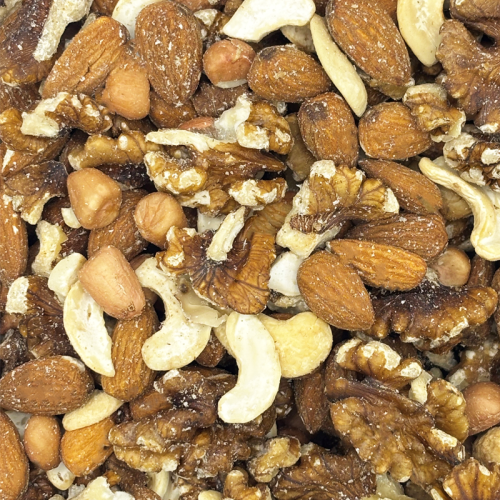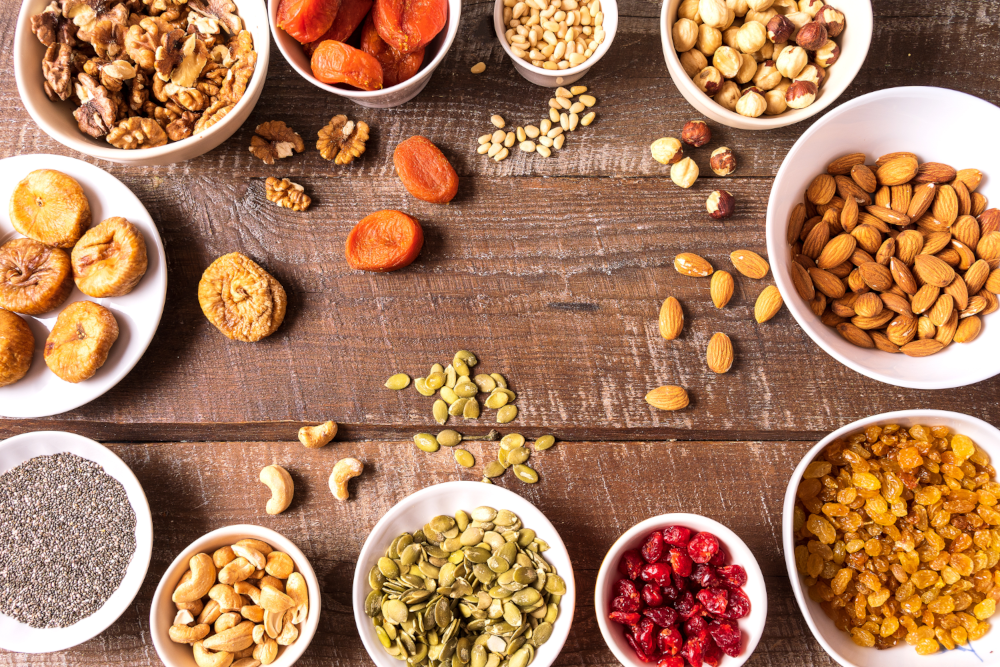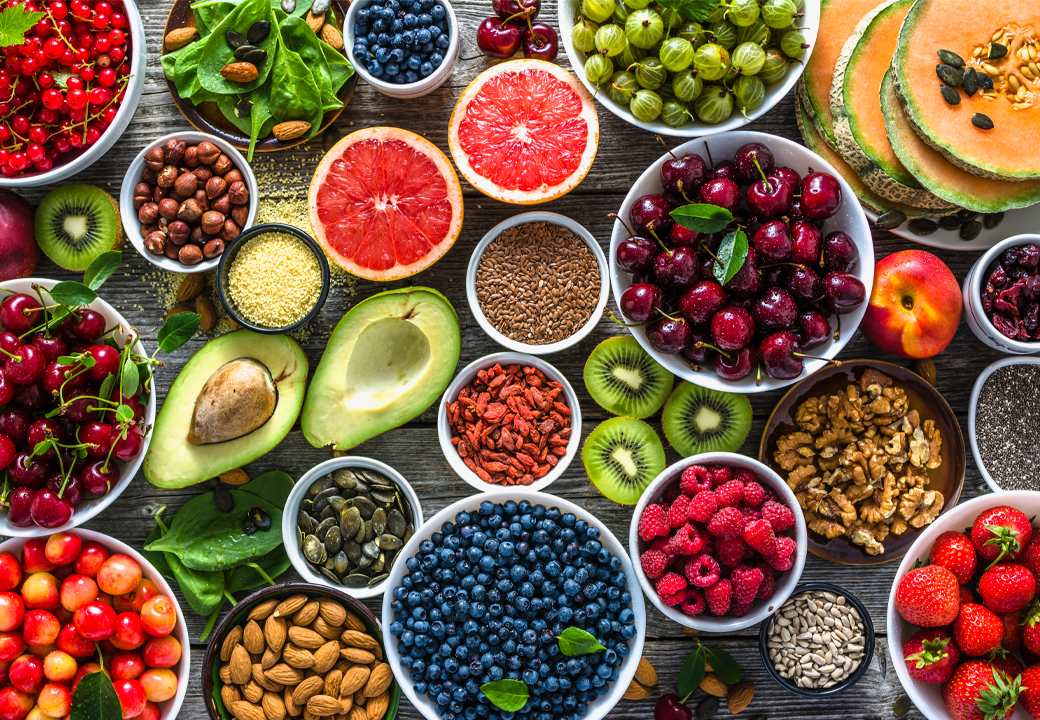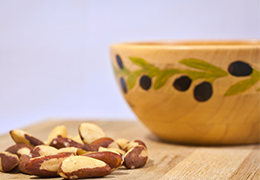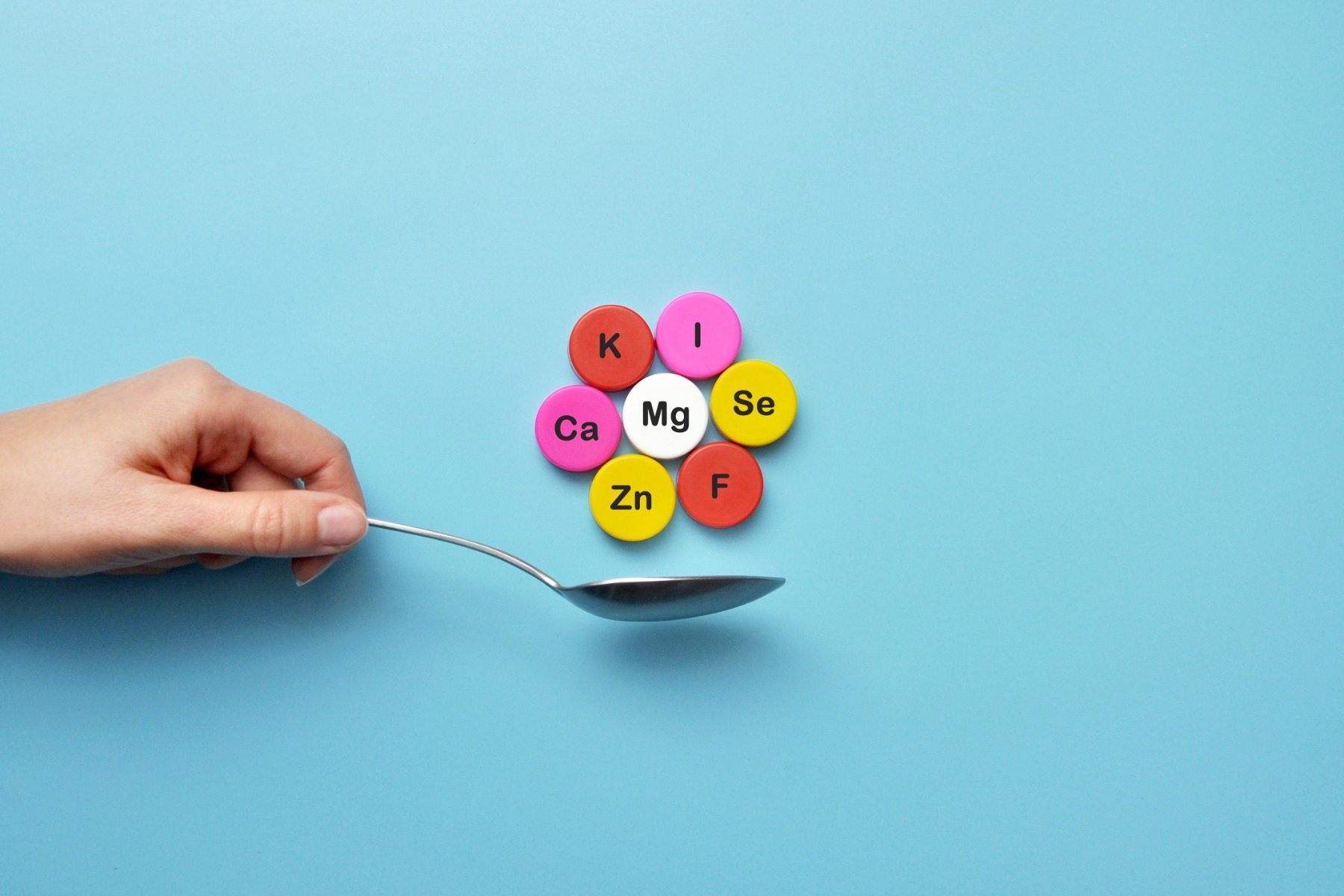
You have probably never given much consideration to what quantity of potassium you eat every day. Or selenium or magnesium for that matter.
Perhaps you should. Because these are three minerals that have vital roles to play in our nutrition and our health. And yet millions of us in Britain simply do not consume enough of them.
The diets of many of us are also going short of iron and calcium. The National Diet and Nutrition Survey lists just how many of us are missing out. More than a quarter of all females are below the recommended levels for potassium and iron. The figure for calcium is close to one in ten. For selenium the figures are a quarter of all men and almost a half of all women. One in ten of us are missing out on magnesium.
So where should we be looking to find the missing five? Well the good news is that they are actually readily available and the foods that are rich in them can be a joy to eat. So here is our guide to why we need these dietary essentials, how much we need and which foods have them. But, of course, because of intolerances or diet choices options involving dairy or meat will not be available to many of us. So, we have also focused on where you can find them in the plant-based options at Grape Tree.
Magnesium
As well as turning the food we eat into energy magnesium is important for bone health. It also steadies the heart rhythm and regulates blood pressure. A deficiency can lead to muscle spasms, agitation and anxiety, sleep disorders, loss of appetite and fatigue. How Much Do We Need? For men 300mg a day and for women 270mg. Where to Find It. Sources include green leafy vegetables, fish meat and dairy foods. Plant based options also include nuts, wholegrains and lentils. Nuts are recommended as a source by the NHS. An ounce of brazils (a handful) contains over 100mgs of magnesium, a third of that daily requirement. The same weight of almonds or cashews serves up a quarter of the total. A handful of linseed or chia will each give you around 150mg. Quinoahas 60mgs in every 100gs.
Potassium
Potassium controls the balance of fluids in the body and is crucial to the working of the heart, brain, nerves and muscles. A deficiency can cause weakness and fatigue, muscle stiffness, aches and cramps and irregular heartbeats. How Much Do We Need? Adults need 3,500mg a day. Where to Find It. Many fruits, vegetables, fish, poultry meat and beef contain potassium but levels are reduced by cooking, particularly boiling. So, eating raw is recommended. Which makes dried fruits, nuts and seeds even more attractive options. Of the nuts pistachios have most. A handful will give you 290mgs or 8 per cent of your target. But a handful of most nuts will hit 5 per cent. A large handful of raisins (a quarter cup) will hit 250mg (7 per cent) and 25gms of pumpkin seed or linseed will supply over 5 per cent.
Selenium
Selenium has key links with the thyroid which is vital for the functioning of all the cells in the body. It helps the immune system and may improve fertility. Selenium is an anti-oxidant that helps protect the body from free radicals. It is also linked with mood. Where to find it The best food source of selenium is brazil nuts. Just one or two nuts a day contain all the selenium you need. While 3 oz of beef or turkey will give you forty per cent of your daily requirement other good vegetarian sources are seeds. A quarter cup of sunflower seeds will give you a third of your daily needs and the same amount of chia and sesame seeds will provide a quarter. Iron Critical for making the red blood cells that carry oxygen around the body iron also helps maintain the immune system. Being low on iron can make you feel tired and faint and can lead to iron deficiency anaemia. How Much Do We Need? Adult men and older women need 8.7mg a day. Younger women need 14.8mg a day until the onset of the menopause.
Iron
Critical for making the red blood cells that carry oxygen around the body iron also helps maintain the immune system. Being low on iron can make you feel tired and faint and can lead to iron deficieny anaemia. How Much Do We Need? Adult men and older women need 8.7mg a day. Younger women need 14.8mg a day until the onset of the menopause. Where to Find it??? Red meats are rich sources, in an easily absorbed form called haem iron. Many breakfast cereals are fortified with irom. Recommended sources of plant based non-haem iron include chickpeas, beans, lentils, nuts and seeds. An ounce (28g) of pumpkin seeds has 4.2mgs, almost half of the daily male target and a cup of quinoa (185gs) has well over a quarter. A handful of cashews (40g) has 2.67mgs and cup of boiled lentils(around 200gs) has a hefty 6.6mgs almost half the female daily target.
Calcium
The body has more calcium than any other mineral. It is vital in building teeth and bones, regulating muscle contractions (including the heartbeat) and making sure blood clots normally. A deficiency can lead to osteoporosis in later life. How Much Do We Need? Adults need 700mg a day Where to Find It Dairy foods, green leafy vegetables (except spinach), bread and anything else made with fortified flour have supplies of calcium. But nuts are also an NHS recommended source. Ten almonds or nine brazils have 50mg. Seeds and dried fruit are also an excellent source. A tablespoon of sesame seeds has over 90mg and the same of chia has almost 80mg. Four figs have 100mg, 3 medjool dates (50gs) have 20mg, 50 raisins have 13 mg.
